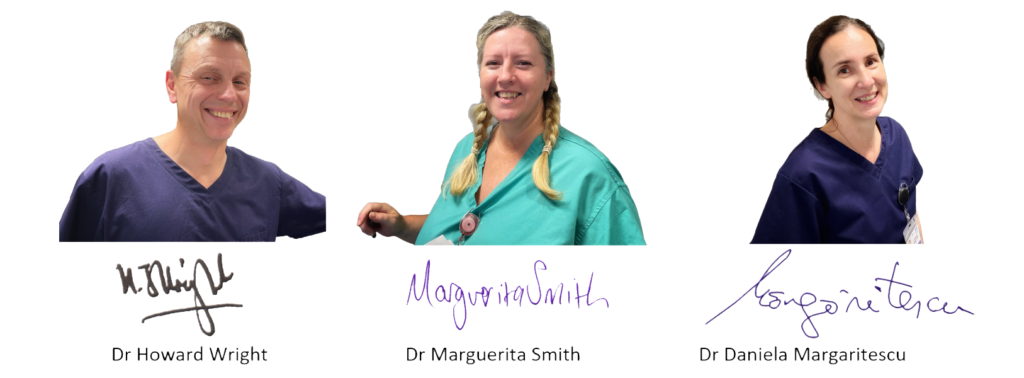
Welcome to our FAQ for Clinical Triage where we hope to be able to provide answers, or at least the rationale, for the Clinical Triage initiative starting Mon 27 Jun 2022

Main differences in our culture
Latest update: 20220717
| Question | Answer, |
|---|---|
| How do I get an appointment? | We ask that you consider the reason for your appointment because there are many areas whereby the Practice Nurses, Physiotherapists, Pharmacists, or Mental Health Practitioners are best placed to listen to your request and effect an appropriate care plan including: prescribing, referring, face-to-face appointment, blood tests, medication reviews – it doesn’t have to be a GP for every ailment. All requests, however, to see a GP will be triaged – there are 3 GPs for 12,500 patients. If, however, you feel that your condition must be assessed by a GP then you will have to begin the process through Clinical Triage – and you will be prioritised by a clinician. |
| How’s the improvement plan going? | It’s going to plan – but everything does take time. ♦ We’re looking at the concept of The aggregation of Marginal Gains (Sir David Brailsford 2010) and turning it on its head. ♦ Improving every element of what we do by just 1% will lead to remarkable gains. We’re initially looking at the areas where we know we are not doing well in order to work on improvement. We’re looking at the aggregation of our marginal errors. We’re looking at reducing the negativity; and by definition we will increase positivity. When we increase positivity we improve service; and when we improve service we improve positivity. When we improve positivity we regain our confidence; and when we regain our confidence – we make the impossible possible – every single day. ♦ When we meet negativity, we confront it, we analyse it, we deal with it, we learn from it; and we move on! |
| Any new changes? | We’re now entering week 4 of the initiative, and although the vast majority of the programme is working well, there are some slight adjustments that have been made in order to help streamline the demand. This is so that we can better administer the patients’ needs without detriment to our service. ♦ We’ve adjusted the popup message on the opening page of our website. The three previous graphics were temporary and sent the user to the respective page. ♦ We’ve had to put a landing page between the popup and the respective service page in so that the message for using each facility is made clear to the patient. ♦ We found that patients were using one page to enter information that should have been channelled elsewhere. There is no one-stop-shop facility available and in order for us to be able to have the right person look at the right request – we need the information to come in the way we have set it up. ♦ Patients were sending clinical information to an administrative message site that may only have been looked at once a week; and despite the automated warnings letting them know this – they sent the message anyway. That’s ok because we understand that mistakes can be made – but it’s not very pleasant when we subsequently get vehement complaints – and even less pleasant when we do our best to signpost the patient but are met with less than respectful comments. |
| Do you look at Social Media comments that are out there? | In short – No! ♦ The main reason being that although social media has a place in society, for some it is the place where they can vent their frustrations without any social conscience of the negative impact it may have on others. The modern equivalent of overt and naked aggressive graffiti – for all to see; so-to-speak! ♦ One negative comment simply blends into another as the experts, sitting in the comfort and safety of their own environment, think nothing of the impact their statements may have – in the hope that their literary masterpieces, often littered with sensational terminological inexactitudes, are seen as ‘the next big scoop’. Acting with unparalleled impunity, it doesn’t even matter nowadays if it’s the truth – as long as it gets put out there first – lest we deign to disagree with their views. ♦ We simply do not subscribe to that mindset and we do not allow anyone to use our platforms to communicate in this way. We’re not afraid to confront our failings – and we have all of the necessary mediums available for people to bring their concerns to us. ♦ One positive comment, however, has the power to lift the spirits of a whole team. One positive comment simply obliterates the rest of the negativity – which in the main is considered merely as unwanted noise! |
| So what is Clinical Triage? | ….The preliminary assessment of patients, by a Clinician, in order to determine the urgency of their need for treatment and the nature of treatment required…. Triage, in its purest sense, can be researched online. |
| What were the main considerations for changing your normal routine? | ♦ What we are doing right now is proving to be more and more challenging ♦ We are not making best use of the skill-set of our staff or the technologies available to us ♦ Patients are spending an inordinate amount of time waiting in a telephone queue which in turn manifests in overt and unsustainable frustration ♦ The volume of on-the-day demand is impeding our ability to carry out follow-up care ♦ We need to do better! |
| Do you have any proven areas whereby the concept has shown to work? | Yes – including: ♦ Practices reporting over 80% uplift in patient satisfaction with similar initiatives . ♦ We already employ; ♦ Video Consulting NearMe/AttendAnywhere ♦ MED3 ♦ SMS – One way from the Practice to the patient ♦ Vision Online Services (VOS) / Patient services ♦ Subject Access Requests and GDPR issues ♦ Complaints |
| Is this not just another version of eConsult, and if so why not just use eConsult? | We tried eConsult, and it didn’t work for us. There were two main areas where we found it to be challenging: High demand vs Clinician availability, and we had no control over the logic responses built into its questionnaire. |
| What were the issues surrounding the high demand vs Clinician availability? | Our research showed that predicting clinical demand was inconsistent throughout the UK. Whilst it was proven to have worked very well for some practices, there was evidence that it had overwhelmed others. We did not plan the clinical input well enough, and we were relying upon a Duty GP to catch all of the eConsults throughout the day. By day 3 our Duty GPs were so overwhelmed it took 4 GPs, working into the late evening to process requests. We had to switch it off because we could not cope with the demand. |
| What do you mean by ‘the logic responses’ ? | ♦ First and foremost we wanted to provide better access for our patients, many of whom cannot afford the time to spend waiting in a seemingly endless telephone queue. ♦ We found that all too often the patients’ responses to the eConsult questions resulted in the patient being stopped – and told to phone the Practice. In order to complete the form the patient would work out that by missing out areas of the questionnaire the form could be submitted. ♦ Phoning the Practice was precisely what we were trying to avoid. ♦ The issue with this was that the information submitted on the form was not always what the patient wanted to see a doctor for – and this caused further complications. |
| What’s different about your form? | The only Logic questions are the declaration at the front end that the request is not pertaining to life-threatening illnesses and that the request is for a patient at the Practice. We want the patient’s request in sufficient detail that the subsequent consultation is meaningful and productive. So we’re not advocating that you call the Practice in the first instance. |
| So can we not call the Practice anymore? | ♦ Yes you can call the Practice. But every telephone call that we do not need to take allows us to process other parts of the operation. This includes helping people to complete their Clinical Triage eForm, and carrying out many other areas of Clinical Administration required by our clinicians in support of our patients’ needs. ♦ We have c. 12,500 patients and between 2 – 6 members of staff to take calls throughout the day. This is the same for many Practices throughout the UK and so the challenges are not unique. We believe that it’s better to channel the requirement into a manageable system rather than try and weather the constant storm. |
| Why can we only complete the form between 05:00 – 10:30 Mon – Fridays? | ♦ We consider that giving 5 and a half hours at the beginning of each day for patients to get their requests to us to be a good starting point. We looked at other practices who elect to have two triage windows; but our model has a concentration of GPs front loaded at the beginning of the day to carry out the triage. ♦ Our Clinical Administrators still need to process the data that comes in from the web submissions. The information must be transposed onto the clinicians rota view, and the attached PDF with the patients’ requests must be uploaded into the clinical system so that the clinician has the best situational awareness prior to making the call. |
| What happens after 10:30? | The form is unavailable until 07:00 the following working day. Thereafter the only other calls that we will be able to consider are those that fall into the Urgent category, and our Clinical Administrators will process the request to the Duty GP. It will be the Duty GP who carries out the triage, and determines the subsequent action. |
| Is it true that Receptionists are barriers to patients seeing GPs? | That’s a great question; and one we’d love to dispel in order to consign it to history. ♦ We have a finite amount of clinician availability, and a finite amount of hours in the day. Our Clinical Administrators, often referred to as Receptionists, have had the unenviable task of working with what availability we give them. ♦ Once a patient has been initially seen by a clinician then the subsequent action can be: no more action because the situation has been resolved, follow up action with bloods taken by a nurse, referral onto secondary care, medication review, follow up appointment within a future timeline. Quite simply; the GP may not be available for some time. ♦ Clinical Administrators do not make or offer Clinical Opinion, and they do not clinically triage. They administer and facilitate the clinical decisions that have been made – and they should be making you aware of the situation at the point of call. |
| Why have you changed the title of Receptionist to Clinical Administrator? | Another great question. ♦ The term Receptionist, in a medical practice environment, conjures up stereotypical images of unqualified members of staff dealing with confidential medical information that they have no business to see; and that they make clinical decisions as if they are fully qualified clinicians. This is simply not the case! ♦ The Clinical Administrator is expected to carry out many functions throughout their daily shift – and reception duties may be only one of many. There is no other area of employment anywhere in any industry that the role can be measured against. The clinical systems employed by the NHS are unique in their nature – and are very complex. ♦ Operatives can take up to 6 months to gain a level of competence, but the systems evolve all the time in order to cater for the ever-changing medical requirements; and they have to be interpreted, learnt, and mastered in order to provide a good service. |
| Why do your Clinical Administrators give their name at the beginning of the call? | ♦ We want the patient experience with the Practice to be successful, and that means setting up the right conditions and standards. ♦ In offering our name, we are taking ownership of the relationship and offering trust – you’re dealing with a person and not a voice on the end of a line. ♦ We want the relationship to begin successfully so that the patient needs can be processed efficiently and so that the patient feels they have been listened to, and completes with a confidence that their request will be be dealt with. |
| We’ve heard that you’re training your Clinical Administrators in many areas. Surely that means that they are unable to concentrate on doing one task well? | That’s a very good point, and thank you for allowing us the opportunity to answer: ♦ There are not too many areas of operation that require specialist attention all of the time. Rather there are some areas requiring specialist attention but most require general to competent knowledge. ♦ In the areas where general knowledge is required, then we have to have the right amount of people readily available to complete those tasks as and when they come in – and they do come in on a regular basis. ♦ We also have to deal with short term sickness, especially more so during the Covid Pandemic which requires self-isolation. Our Administrators must be able to recognize when to change direction if the situation changes – and they do – and our patients are feeling the positive effect it is having on processing workload. ♦ We’ve set up successful training and mentoring systems and have metrics to show our Clinical Administrators where they are excelling, as well as where we need to offer a more targeted approach to their learning. |
| How is the culture within your team? | That’s a great question; and thanks for giving us the opportunity to answer. In short, it’s absolutely fantastic. We can’t quite believe how all of a sudden, and it was quite sudden, that an overwhelming wave of positivity swept through the Practice. Suddenly the team realised that they were no longer shackled with outdated practises, they realised that their voices were heard; and very importantly they began to trust one another – and being free from old prejudices, their confidence grew, and they began to perform like a team. We still have difficult days – but we know who’s in the canoe! |
| What happens if I’m not happy with the service that you provide? | We do hope that you give the new system a little time to embed; we are not predicting miracles; but we are trying to better manage the patient demand through this initiative. We will be carrying out an active survey in due course but if you feel strongly enough to let us know your frustrations you can access any of two forms: Contact Us – and if you wish to raise a formal complaint then visit our Complaints Policy Page where you will find the pathways to the Complaints Form. |
| What happens if I want to go straight to the Ombudsman with my complaint? | Although we would much rather have the opportunity to have dialogue with you, mainly because early intervention has proved to be the most efficient way of dealing with complaints, we recognise and will always respect your right to take your complaint higher; either in the first instance, or because you remain dissatisfied with the Practice response. The link to send a complaint directly to the Ombudsman can be found here (Link). |
| Why have you included Repeat Prescriptions into the Clinical Triage eForm? | ♦ If you haven’t already done so we’d much rather you signed up for Patient Services. This is that way that future requests will be processed; and the information transposes into our clinical system without the need to process through a Clinical Administrator. ♦ But we recognise that not everyone has had the time to look into this excellent service; and so we want to be able to offer our patients a wider range of options to contact us. ♦ The prescription line (01261 819107) will stay for the short term; but there are inefficiencies that can prove challenging. Medication names can be complex, and many sound similar, they also involve the patient being in a queue; and it can take a trained operator some time to process the information on the answer-service – valuable time that could be spent processing more requests. |
| You’re considering getting rid of the Prescriptions line – say it’s not so! | Online is the future but; ♦ We recognize that not all can go online, and so there will still be alternative methods, such as handing in your script to the Practice for processing always available to our patients. |
| Macduff Medical Practice | Seeking continual improvement through targeted learning |

Success
We believe that we will achieve incredible success because we are surrounded, now, by competent people whose motivation comes from within, and we give them the time and space to express themselves. They, in turn, make the impossible possible – every single day.
What are the main differences you’re employing with your Clinical Administrators?
In trying to compare the requirements of today’s modern Clinical Administrator here are the underlying cultures we are trying to inculcate in our highly successful team:
| Past | Future |
|---|---|
| Fixed Mindset | Growth Mindset |
| Works 9 – 5 | Works anytime and flexible in the approach |
| Works in a corporate office | Can work anywhere |
| Use company equipment only | Use any device |
| Focused on Inputs | Focused on Outputs |
| Climb the corporate ladder | Create your own ladder |
| Pre-defined work | Customized work |
| Hoards information | Shares information |
| No Voice | Can become a Leader |
| Relies on eMail | Relies on collaboration technologies |
| Focused on knowledge | Focused on adaptive learning |
| Targets people | Targets issues |
| Intention to point out mistakes | Intention to learn from mistakes |
| Mask mistakes | Own the mistake – and deal with it |
| Requires many years of knowledge to become competent | Learns the system – learns it well – and then employs it quickly and to a far higher standard |
| Single Task Mindset | Learns systems, concepts, strategies, and then uses these tools to address challenges |
| Waits to be told what to do | Understands the specifications of the requirement, and works out the implications involved – then deals with the challenge |
| Goes with the flow – or with those that shout the loudest | Having the courage to raise a hand and say ”I disagree” without fear of prejudice or ostracisation. Gets the issues on the table as the start point for the debate |
| Corporate learning and teaching | Democratized learning and teaching |
| Expressing yourself | Expressing yourself but being thoughtful about the impact of your moods on others |
| Macduff Medical Practice | Seeking continual improvement through targeted learning |

It’s all about which part of the issue you concentrate your focus


